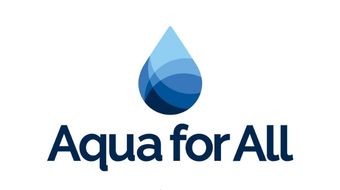The Toilet Board Coalition (TBC) focus on enabling private sector engagement; connecting large and small companies; and ensuring close collaboration between private, public and non-profit sectors with the common goal to achieve universal access to sanitation is very much aligned with the goals of USAID’s Water Office and its investments, including its WATER, SANITATION AND HYGIENE FINANCE( WASH-FIN) mechanism. USAID has supported the TBC and its Secretariat since 2016 through a Fixed Amount Award. USAID is pleased to also leverage its (WASH-FIN) mechanism to provide, when appropriate, technical assistance to select TBC cohorts to help select strengthen their investability by helping to reduce risk and build creditworthiness to gain access to private capital. WASH-FIN is working to help close financing gaps to achieve universal access to water and sanitation services through sustainable and creditworthy business models, increased public funding and expanded market finance for infrastructure investment.
The TBC has framed the sanitation economy, which is a robust marketplace of products and services, renewable resource flows, data and information that could transform future cities, communities, and businesses, identifies a vast array of business opportunities. Central to the efforts of the TBC, is the Toilet Accelerator which is dedicated to sanitation entrepreneurs in low-income markets and works with promising sanitation businesses for 12 months through a small business-large business mentorship program model. Current and past cohorts are poised to enter the market, but are also in need of guidance regarding pathways to access financing for capital and operating expenses. Why is it important? A 2016 analysis by the World Bank estimates that $114 billion per year of capital investment will be required to meet universal access to safely managed water and sanitation services by 2030, or about three times the current investment levels. USAID’s WASH-FIN approach to closing financing gaps is based on the premise that citizens should be treated as valued customers and adequately served by water, sanitation and hygiene (WASH) service providers operating on sustainable business models that strengthen creditworthiness, within clear regulatory and governance structures. Only then can increased public investment and market finance be effectively leveraged to expand or improve service delivery.
What is USAID’s role in increasing the availability and sustainable management of safe sanitation?
In late 2017, U.S. Department of State and the U.S. Agency for International Development released the U.S. government’s Global Water Strategy In support of the Global Water Strategy, USAID seeks to provide 15 million people with sustainable access to safe drinking water services, and eight million people with sustainable access to sanitation services. To advance the Strategy, the U.S. government will work with partner countries and key stakeholders to achieve four interrelated objectives: (1) increasing access to sustainable safe drinking water and sanitation services, and promoting hygiene; (2) protecting freshwater resources; (3) promoting cooperation on shared waters; and (4) strengthening water governance and financing. The U.S. government’s efforts will focus on countries and regions where needs and opportunities are greatest and where engagement can best protect our national security interests.
-Portia Persley, Deputy Director, E3 Bureau/Water Office at USAID






